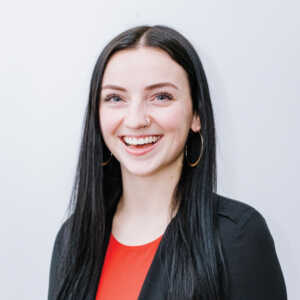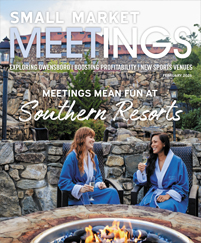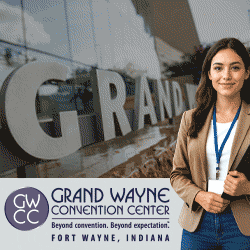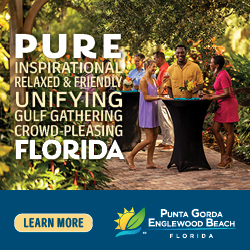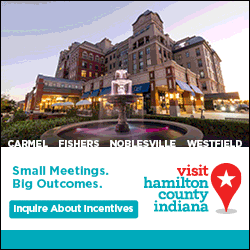Rachel Crick recently spoke with Halee Grimsdale, the director of production and partnerships for Energy Disruptors on building an authentic community in an increasingly digital environment.
Halee Grimsdale is the director of production and partnerships at Energy Disruptors, whose summit events aim to unite people and companies for the purpose of solving problems in the global energy industry. Prior to her role there, she worked for E=mc2 Events as an experience coordinator and for the Alberta Mortgage Brokers Association as an event coordinator. She graduated with a Bachelor of Commerce degree from Haskayne School of Business and obtained a master’s in international business from UPF Barcelona School of Management. She’s also a member of PCMA’s 20 in their Twenties, Class of 2025.
Q: How can young planners make it a priority to build an authentic community for themselves?
A: The biggest challenge is the landscape we face currently. There aren’t that many industry events, and the newest generation of planners don’t have a ton of people to influence what we’re doing next. More experienced planners have a robust network of friends and colleagues. After COVID happened, the event industry took a huge hit. There’s a gap between the really experienced network of people and this group of new people who are trying to build a network but don’t always know how. The challenge will be putting ourselves out there because we don’t always have a roadmap. Companies should have a few days or events in-person to grow the communities within their workplaces, but also try to go to local events with other event planners. A lot of times it’s the older generations who automatically get to go to these professional development events, but I think the next generation should also be given the opportunities to go.
Q: What are some challenges you’ve seen coming from a more digital or hybrid model of working?
A: For me, the biggest challenge I see with it is not with the internal front within your company, but on the external side of things. It’s very hard to build your network when we’re all so used to this digital world now. Even for us planners, going to events for ourselves isn’t always a priority. We say, “I’m so busy, I don’t have to, so I’m going to stay home.” But we still need to put ourselves out there to build that network and community. There are struggles internally, too. It can be challenging to build a relationship with your colleagues when everyone is working remote. When it’s an option, many opt not to come into the office at all, and then they’re not building relationships with people to lean on. The industry is so collaborative at its core. You want perspectives from different backgrounds because some people are more creative, and some people are more logical, and the ability to jump into conversations with one another at the office is so valuable.
Q: What are some of the ways planners can counteract these challenges, both at work and in their professional lives?
A: In my opinion, it’s about flexibility. Everybody loves the fact that when they work remote, they can book a meeting or an appointment during the day, or they can do a quick load of laundry in between calls. There would definitely be pushback to mandating all in-person work again, and by no means am I pushing that. But within each organization, I think it’s really important to be intentional with your time and set days with your colleagues to go into the office together and have those experiences. Have that flexibility, but also have those days where you can go into the office. Externally, it’s important for us to connect as an industry outside of just virtually. In our local community, it’s valuable to know who the players are in the events world and build partnerships. I never had an industry event where I didn’t make a new connection or find somebody that could help me out moving forward.
Q: How does social media contribute to forming an authentic community of event planners?
A: I definitely think it’s easier for us to connect on a global scale with social media. I just went to PCMA, and all of us connected on LinkedIn, making it so easy for us to reconnect at a later date and ask questions we need to ask. However, I’m hopeful that it’s not a crutch or doing us an injustice by making us feel like we have this connection without needing to meet. It’s supplemental and easy for quick help, but we’re not necessarily gaining that personal experience on social media.
Q: What role can mentorships play in creating an authentic community for the next generations of event planners?
A: I think it goes both ways. The younger planner needs to be reaching out and asking for help, and reaching out to ask, “Will you be my mentor? Can I ask you questions?” But it’s a million times easier when the experienced planner goes to the next-generation event professional and states, “I’m here to offer whatever you need” or “Let’s go to this event together, so I can explain how things work.” The outreach is important. So, these mentorships let you stay involved, and they’re important so it’s not just us as young professionals on our own and experienced planners in a bubble.




